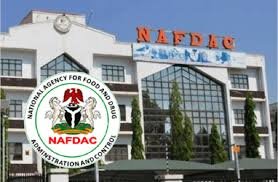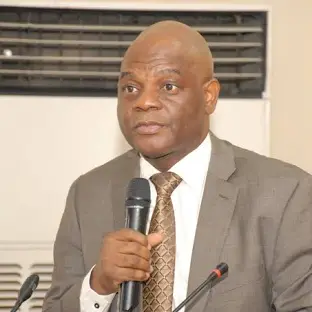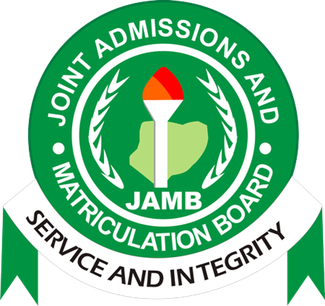In a country where the scourge of counterfeit medications has claimed countless lives and jeopardized the health of millions of her citizens, the regulatory agency or body empowered by the laws to control, fight against the decadence, and save lives is seemingly absent. Against the backdrop of health complications arising from substandard medicines commonly available nearly everywhere in Nigeria, Africa Health Report, AHR Southwest correspondent, Korede Abdullah delves into NAFDAC’s strategies, successes, and challenges in the fight against the deadly menace, and examines what more it needs to do to attain its full mandate in ensuring the health of all Nigerians is protected.
The Fake Drug Epidemic
In Nigeria’s terrifying pharmaceutical underworld, counterfeiters have perfected the art of deception, evading authorities with alarming ease.
Fake drugs, or substandard medical products, are counterfeit medications produced at below standard quality or sold as proxies for authentic brands.
Despite efforts by the National Agency for Food and Drug Administration and Control (NAFDAC), fake drug peddlers continue to flood the market with substandard and counterfeit medications, putting millions of lives at risk.

These cunning operators exploit weaknesses in the supply chain, using sophisticated packaging and labelling to dupe unsuspecting consumers.
With their networks of clandestine manufacturers, distributors and sellers, they’ve managed to stay one step ahead of NAFDAC’s enforcement efforts, perpetuating a deadly game of cat and mouse that threatens the very fabric of Nigeria’s healthcare system.
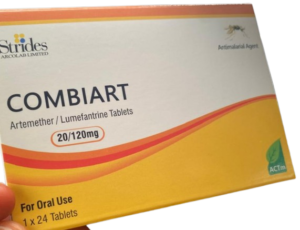
Health experts are alarmed by the rampant cases of counterfeit and substandard drugs in the country, sourced from both local and foreign manufacturers.
Many consumers, unable to identify fake products or seeking affordable alternatives, unknowingly purchase these harmful medications.
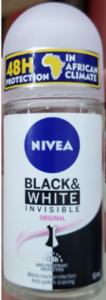
The recent withdrawal of pharma giants GlaxoSmithKline and Sanofi from Nigeria has exacerbated the scarcity and cost of genuine products, with prices for essential medications like inhalers doubling, leaving approximately 10 million asthma sufferers vulnerable to fake drugs.
Fake Drug Peddlers Run Amok
Fake drug hawkers have taken over the streets of Lagos and other major cities and towns in the country, posing a significant threat to public health.
These individuals brazenly sell counterfeit medications to unsuspecting commuters on buses and street corners, often touting them as miracle cures.
Their illicit activities have endangered the lives of millions, exposing innocent people to harmful substances and ineffective treatments.
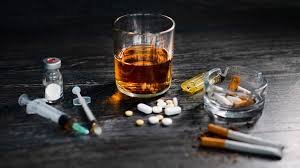
Authorities warn that these fake drugs can cause serious harm, including organ damage, allergic reactions and even death, emphasizing the need for urgent action to curb this menace and protect the well-being of Nigerians.
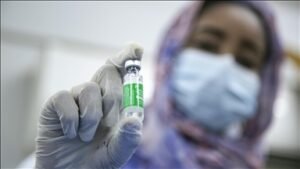
Nigeria Plagued by Fake Drugs Menace
Nigerian health experts are worried over the influx of fake and substandard drugs into the country, which they complain is endangering the public’s health.
The Fake Drug Menace in Nigeria
Nigeria has long been plagued by the scourge of counterfeit pharmaceuticals, putting millions of lives at risk.
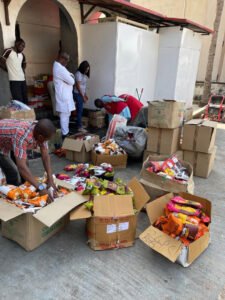
Fake drugs, often indistinguishable from genuine ones, have flooded the market, causing widespread harm and even death. This menace has undermined public trust in the healthcare system and crippled the economy.
Almost twenty years ago, Professor Dora Akunyili, the fearless chairperson of NAFDAC (2001-2008), waged a relentless war against fake drug peddlers.
Professor Akunyili’s courageous leadership and unwavering dedication led to significant reforms and a notable decline in counterfeit drug circulation.
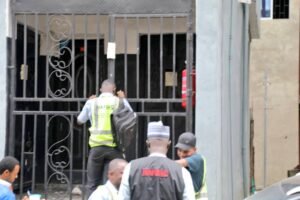
Fight Against Fake drugs, Not yet Uhuru
Two decades after Professor Akunyili’s courageous crusade against counterfeit pharmaceuticals, Nigeria still grapples with this persistent menace. Despite efforts by regulatory bodies, including the NAFDAC, fake drugs continue to flood the market with alarming ease.
The situation has worsened, with counterfeiters adapting sophisticated tactics to evade detection. This resurgence threatens the country’s healthcare system, economy and, most critically, human lives.
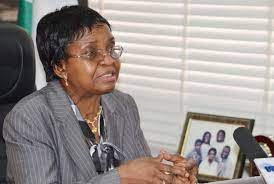
NAFDAC’s ongoing efforts include raids, seizures and prosecutions, but challenges persist. Corruption, porous borders and lack of public awareness hinder progress. Additionally, the rise of online pharmacies has created new avenues for counterfeiters.
NAFDAC Issues Public Alert
The NAFDAC recently issued a public alert, No. 043/2024, warning Nigerians about the circulation of counterfeit Combiant (Artemether Lumefantrine 20/120mg) Dispersible Tablets.
The fake tablets, manufactured in February and June 2023, have expiration dates of May and June 2026, and batch number 7225119 with NAFDAC Reg No: A11-0299. The counterfeit products are linked to Strides Arcolab Limited, based in Bangalore, India.
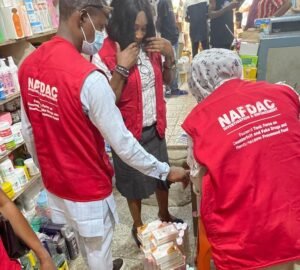
NAFDAC directed its zonal directors and state coordinators to conduct surveillance and remove the counterfeit products from circulation.
The agency also advised importers, distributors, retailers, healthcare professionals, and caregivers to exercise caution and obtain medical products from authorized suppliers, carefully checking their authenticity and physical condition.
“Healthcare professionals and patients are encouraged to report adverse or side effects related to medicinal products or devices to the nearest NAFDAC office or through E-reporting platforms on the NAFDAC website,” the agency said.
Suspected Counterfeit Amoxycillin Capsules
As reported by Africa Health Report (AHR), the NAFDAC on Thursday, December 12 launched an investigation into suspected counterfeit Deekins Amoxycillin 500mg capsules, manufactured by Ecomed Pharma Ltd and marketed by Devine Kings Pharmaceutical Ltd.
This probe followed reports of serious adverse reactions linked to the medication, with complaints emerging from affected patients nationwide.
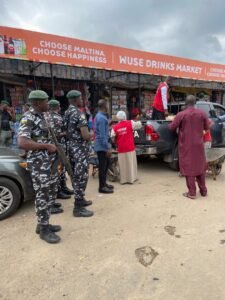
NAFDAC’s investigation revealed discrepancies in production claims, with Ecomed Pharma Ltd reporting only 20 packets of the implicated batch for registration purposes, while 790 packs bearing the same lot number have been recalled.
“This situation is deeply concerning, as it involves the safety of medicines distributed in Nigeria,” stated Mr. Kingsley Ekeanyanwu, Marketing Authorization Holder for Devine Kings Pharmaceutical Ltd.
NAFDAC Director General, Professor Mojisola Adeyeye, urged Nigerians to avoid the suspected substandard Deekins Amoxycillin 500mg Capsule, emphasizing that all medical products must be obtained from authorized/licensed suppliers and their authenticity and physical condition carefully checked.
Fake Drugs, Threat to Public Health
According to the World Health Organization, fake drugs drugs are often packaged in unregulated facilities and supplied to low-income countries with weak drug regulations.
A recent study by the UN Office on Drugs and Crime reveals alarming statistics: up to 500,000 people die annually from counterfeit drugs in sub-Saharan Africa, with 267,000 deaths from substandard malaria drugs and 169,000 deaths from fake antibiotics used to treat pneumonia in children.
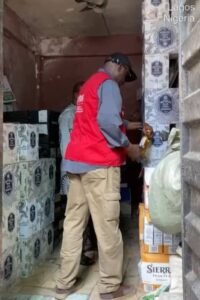
The economic toll is also staggering, with $12 million to $44.7 million spent annually treating people who have used counterfeit or substandard malaria drugs.
In Nigeria, medical experts warn that counterfeit medications exacerbate deaths from prevalent illnesses like malaria, stroke, hypertension, asthma and cholera.
Furthermore, continuous intake of counterfeit antibiotics and supplements can render patients unresponsive to genuine medications, complicating healthcare efforts.
As the threat of fake drugs continues to loom, authorities and healthcare professionals urge increased vigilance and regulation to protect public health.
NAFDAC’s Crucial Role
The NAFDAC plays a vital role in combating the proliferation of counterfeit pharmaceuticals in Nigeria. Experts emphasize that NAFDAC’s regulatory oversight is crucial in ensuring the safety and efficacy of medications.
“NAFDAC’s efforts are instrumental in safeguarding public health,” says Dr. Olajide Adeyeye, a pharmaceutical expert.
“Their vigilance and enforcement activities help prevent counterfeit drugs from entering the market.”, Dr Adeye advised.
According to Professor Chukwu Okorie, a pharmacology professor, “NAFDAC’s laboratory testing and analysis capabilities are essential in detecting substandard medications.”
Experts also stressed the importance of public awareness and education in preventing the spread of fake drugs.
“NAFDAC’s public advisories and campaigns are critical in informing consumers about the risks associated with counterfeit medications,” added Dr. Adeyeye.
Nigerians Fall Victim
In a disturbing trend, several Nigerians have suffered severe health complications after unknowingly purchasing medications without NAFDAC approval numbers.
The victims, who sought treatment for various ailments, were misled into buying counterfeit drugs from unlicensed vendors.
These medications, lacking regulatory oversight, contained harmful ingredients that triggered adverse reactions, including organ damage, allergic reactions and debilitating side effects.
NAFDAC officials have warned citizens to exercise extreme caution when purchasing medications, emphasizing the importance of verifying approval numbers and buying from licensed pharmacies.
In heartbreaking accounts shared with Africa Health Report (AHR), several Nigerians recounted their harrowing experiences after unknowingly purchasing medications without NAFDAC approval numbers.
“I bought what I thought was a genuine antibiotic, but it turned out to be fake,” said Mrs. Rahmat Adebayo, who suffered severe allergic reactions.
Another victim, Mr Bello Hassan, whose case nearly ended his life had this to say, “I almost lost my life.” He had gone to a pharmacist’s shop to purchase a pain reliever, not knowing the drug was counterfeit.
“I ended up in the hospital for weeks with kidney damage.”, Bello told our correspondent with a pathetic sob.
Also narrating her tales of woes, Mrs. Hassan, shared, “I spent all my retirement savings on fake rheumaticism medication. It was a devastating experience.”
These victims, and many others, are now advocating for stricter regulation and public awareness campaigns to prevent others from falling prey to counterfeit medications.
Deadly Consequences of Fake Drugs
Taking fake drugs can have devastating and long-lasting consequences for the human body. According to health experts, counterfeit medications can cause severe allergic reactions, organ damage, and even death.
Fake drugs often contain harmful ingredients, such as toxic chemicals, heavy metals, or untested substances, which can trigger adverse reactions, including kidney failure, liver damage, and respiratory distress.
“In some cases, fake drugs can also lead to prolonged illnesses, disability, and financial ruin.
“Moreover, the use of counterfeit medications can also contribute to the development of antibiotic-resistant bacteria, making infections harder to treat.”, explained Mr Yaqub Agbede, a health expert.
Health authorities warn that the risks associated with fake drugs are very real and urge consumers to only purchase medications from licensed pharmacies and verified sources.
During her lifetime, Professor Akunyili, NAFDAC DG, alerted the public that fake drugs are responsible for the growing number of cases of hypertension, heart failure, stroke, and other illnesses in Nigeria.
“When people are taking fake or substandard antihypertension drugs, their blood pressure will continue to rise—because what they are taking is rubbish—until they go down with stroke or even die,” she said.
“Some of these fake drugs contain nothing. Some of them contain chalk, milk in capsules, and some of them contain little of the active ingredients.
“The fakers are very smart. They know for instance that a drug like chloroquine is bitter and that if they don’t put a little chloroquine in their fake chloroquine, people will know that it is not chloroquine.
“So instead of the 200 mg chloroquine that should be in the tablet, they will put 41 mg. That is what we have been getting from our analysis.”, she said.
Africa Health Report (AHR) gathered that there was an increase in reported cases of patients who no longer respond to genuine antibiotics as a result of resistance induced by previous intake of fake antibiotics.
AHR correspondent also learned that not all fake drugs in Nigeria come from abroad. Unscrupulous local manufacturers are also involved in the racket.
Alhaji Mohammed Yaro Budah, a pharmacist and the former president of the Pharmaceutical Society of Nigeria, sent shock waves to the spines of many Nigerians when he lamented at a forum that 70% of the drugs in Nigeria are fake.
This newspaper gathered that imported fake and substandard drugs in Nigeria came mainly from India, China, Pakistan, Egypt, and Indonesia.
“We held meetings with ambassadors of countries identified as sources of fake drug exportation into Nigeria. These countries, which include China, Pakistan, Indonesia, Egypt and India, have already begun to take measures to discourage this racket.”, Budah disclosed.
The NAFDAC revealed that approximately half of the imported drugs are counterfeit, this corroborated the alarm raised by Alhaji Budah, highlighting the urgency of addressing this issue.
ECOWAS Research
A 2023 study by the Economic Community of West African States’ (ECOWAS) “Organised Crime: West African Response to Trafficking” project reveals that counterfeit medical products from China and India are inundating drug markets in Nigeria, Ghana, Benin Republic, Togo, Guinea and other regional countries.
These illegal drugs, often shipped from Guangzhou, China, and cleared through Apapa, Tema, Cotonou and Conakry ports using intermediaries, have turned West Africa into a hotspot for medical product trafficking.
The report estimates that the illicit market accounts for 80% of medical products in Burkina Faso and Guinea, and between 20% to 60% of the formal market across the region.
The comprehensive research drew on the Global Initiative Against Transnational Organised Crime’s Hotspots Mapping Initiative and extensive literature reviews, revealing alarming statistics on fake drug-related deaths in sub-Saharan Africa.
The UNODC’s threat assessment in February this year, estimated that counterfeit medications claim almost 500,000 lives annually, with 267,000 deaths linked to falsified antimalarial medicines and up to 169,271 attributed to substandard antibiotics used to treat pneumonia in children, highlighting the urgent need for effective countermeasures.
The UNODC declared that the sale of counterfeit medical products in West Africa was worth about $1bn, more than the combined value of the crude oil and cocaine trafficking markets.
WHO’s Staggering Revelations
The World Health Organization (WHO) estimates that annual costs for treating individuals who have used falsified or substandard malaria medications in sub-Saharan Africa range from $12 million to $44.7 million.
According to the WHO, “one in every 10 products sold in low- and middle-income countries is either substandard or falsified,” with Africa accounting for almost half of reported counterfeits.
The organization notes that limited local production of genuine medical products has led to a significant market penetration rate of 30% in Africa, compared to just 1% in more developed countries.
NAFDAC Living on Past Glory
NAFDAC’s effectiveness has waned under Professor Mojisola Adeyeye’s leadership, with critics arguing she prioritizes personal accolades over combating counterfeit medications.
“This penchant for certification is manifested in the way the NAFDAC DG has been brandishing local and foreign awards, rather than fighting fake drugs to a standstill.”, a competent source told this newspaper.
The agency’s operational capacity is said to be hindered by inadequate funding, leaving task force teams without essential resources like fuel for operational vehicles and logistics support.
This financial constraint stifles their performance, particularly during official assignments within and outside Nigeria, where staff are often denied necessary funds.
Furthermore, NAFDAC’s reliance on Internally Generated Revenue (IGR) has led to obsolete equipment and insufficient budget allocations, severely impacting its regulatory functions.
Fake Drug Lords Go Unscathed
NAFDAC’s enforcement efforts have been criticized for being lax and weak, as evidenced by the recent arrest and subsequent release of billionaire counterfeit drug manufacturers.
Despite being taken into custody with the expectation that they would be paraded before pressmen, these suspects remarkably returned home in luxury vehicles, highlighting their immense power and influence.
This incident underscores concerns that many fake drug peddlers remain untouchable, operating with impunity and undermining efforts to combat the illicit trade.
NAFDAC Urged to Revamp
Experts are calling on the NAFDAC to revamp its strategy in combating counterfeit medications.
To effectively tackle the menace, experts recommend strengthening the regulatory framework and enforcement, fostering collaboration with international organizations such as the World Health Organization (WHO) and Interpol, launching public awareness campaigns and education initiatives, and enhancing laboratory testing and analysis capabilities.
Experts have urged the regulatory agency to implement crucial reforms to boost its efficiency and effectiveness.
Key recommendations include significantly increasing funding and resources, launching enhanced public awareness and education campaigns, fostering strengthened international collaboration, and overhauling the regulatory framework and enforcement mechanisms.
By implementing these measures, NAFDAC they believe, can enhance its capacity to combat counterfeit medications and safeguard public health.

